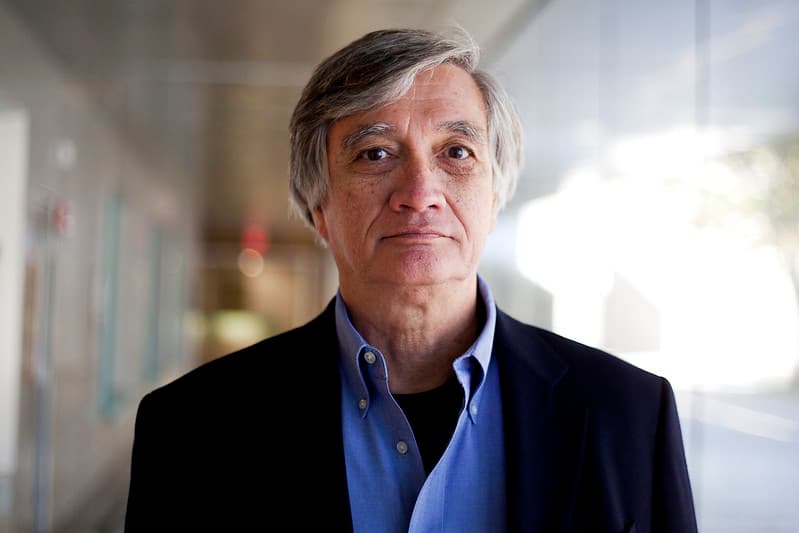
In Memoriam: Rodney Ewing
The NERS Professor Emeritus’s legacy is one of profound scientific advancement and dedication to the betterment of nuclear security and environmental sustainability.

The NERS Professor Emeritus’s legacy is one of profound scientific advancement and dedication to the betterment of nuclear security and environmental sustainability.
Rodney Ewing, NERS Professor Emeritus, passed away on July 13, 2024, at age 77. Ewing was a distinguished scholar whose contributions to the fields of mineralogy and nuclear materials have left an indelible mark on science and society.
Born on September 20, 1946, in Abilene, Texas, Rod Ewing’s academic journey began at Texas Christian University, where he graduated summa cum laude with a B.S. in 1968. He continued his studies at Stanford University, earning an M.S. in 1972 and a Ph.D. in 1974.
His early career included a significant period of service in the United States Army as a Vietnamese interpreter attached to the 25th Infantry Division, and then at the University of New Mexico, where he advanced to the rank of Regents’ Professor of Earth & Planetary Sciences.
In 1997, he joined the University of Michigan, serving as a professor in three departments: NERS, Earth & Environmental Sciences, and Materials Science & Engineering. His tenure at Michigan was marked by his appointment as the Edward H. Kraus University Professor in 2009. In 2014, Ewing transitioned to Stanford University.
Rod Ewing’s research revolutionized the understanding of nuclear materials, particularly through his studies on the long-term behavior of complex ceramic materials and their application in nuclear waste sequestration. He authored over 750 research publications and was involved in editing numerous scholarly works. His innovative work earned him numerous accolades, including the election to the National Academy of Engineering in 2017.
Throughout his career, Ewing’s contributions extended beyond research. He played pivotal roles in various organizations, such as serving as the president of the Mineralogical Society of America and the International Union of Materials Research Societies. Ewing played a significant role in shaping the future of nuclear policy in the United States. He was appointed by President Barack Obama to serve on the Blue Ribbon Commission on America’s Nuclear Future. The commission’s recommendations, particularly on consent-based siting, have significantly influenced current policies on nuclear waste management. Obama also appointed him to the Nuclear Waste Technical Review Board.
Among his many honors, Ewing was awarded the Roebling Medal of the Mineralogical Society of America, the Ian Campbell Medal of the American Geoscience Institute, and the Lomonosov Gold Medal of the Russian Academy of Sciences. In 2017, a new mineral, Ewingite, was named in his honor, recognizing his profound impact on mineralogy.
Rod Ewing’s legacy is one of profound scientific advancement and dedication to the betterment of nuclear security and environmental sustainability.
“What a monumental loss for the nuclear field,” said NERS Assistant Professor Aditi Verma. “Professor Ewing’s science and policy work has transformed how we think about nuclear waste and its stewardship. I will remember him equally for his brilliance of mind and his kindness and generosity to numerous young scholars in the field.”
“I was always impressed at Rod’s ability to seamlessly and impactfully move between deep science and thoughtful policy,” reflected Professor and Chair Todd Allen. “He exemplified my idea of a modern scientific leader.”
“Indeed I am so surprised and saddened to hear the news of Professor Ewing’s passing,” said NERS Professor John Lee. “Most recently I worked closely with him for two full years on the U.S. National Academy of Sciences committee on advanced reactors and nuclear fuel cycles, where I developed tremendous respect for his scientific knowledge and contributions in geology and used nuclear fuel management and for his scientific integrity. “I will also miss him greatly for his gracious personal support for me as a departmental colleague during the time I served as the NERS Chair. I offer condolences to his family and prayers for the repose of his soul.”